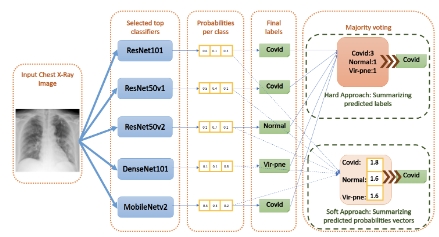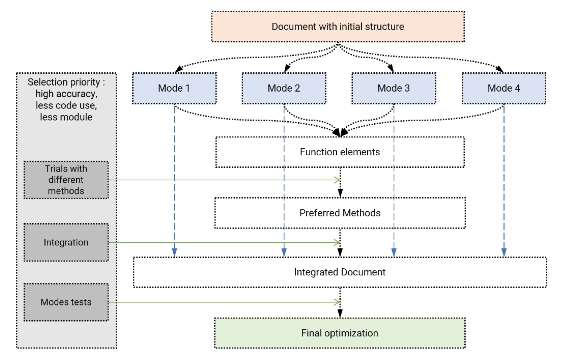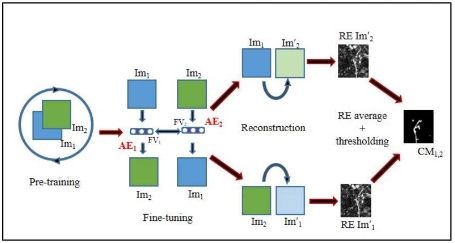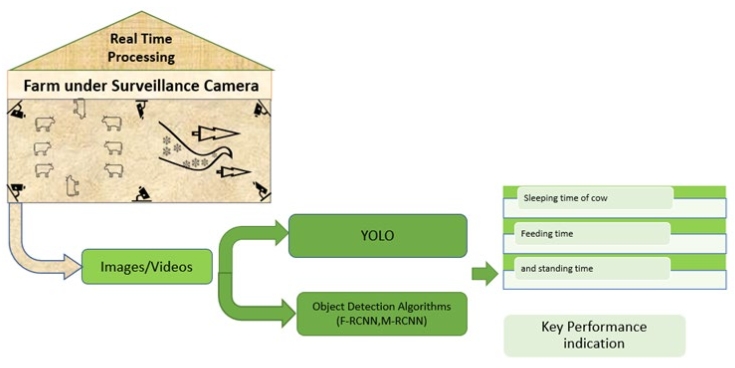Advanced nonlinear fuzzy observer and robust control design for systems subject to cyber-physical attacks
Abstract
In the following contribution, the control design of CPSs (Cyber Physical Systems) usually consists of an observer to estimate the state of the physical system and a controller to compute the control commands based on the state estimation studied. Our objective is to design control methods that are robust against attacks in the model, attenuating their effect and ensuring at the same time a reliable state and attack estimation allowing their detection and isolation while maintaining the system stability, integrity, and performance. The considered approach is based on the Lyapunov theory and LMI resolution approach in order to deduce the observers-controller gains. A robust output H∞ control and quadratic stabilization for nonlinear systems subject to actuator and sensor data deception attacks (cyber-physical-attacks) is proposed. The detection & identification issues are also reconsidered since the system states and the malicious signals will be reconstructed via a Polytopic-based T-S (Takagi-Sugeno) observer. An innovative design method where the attacked system is presented as an uncertain one subject to external disturbances is developed. A robust polytopic state feedback stabilizing controller based on a polytopic observer with disturbances attenuation for the resulting uncertain system is considered. To illustrate our proposed approach, we present a numerical example. An algorithm based on a robust polytopic controller ensuring asymptotic stability despite data deception attacks and external perturbations attenuation guaranteed by the H∞ norm will be given. Indeed, a PDC (Parallel Distributed Compensation) controller coupled with a polytopic observer to estimate the unmeasurable state variables and actuator/sensor attack signals will be designed for nonlinear systems subjected to data deception attacks.
References
[1]Bezzaoucha Rebai S. A Cyber-Security Contribution to Estimation and Event-Based Control Scheduling Co-Design for Polytopic and T-S Fuzzy Models Using a Lyapunov Approach. Springer Nature; 2022.
[2]Wang R, Sun Q, Ma D, Hu X. Line impedance cooperative stability region identification method for grid-tied inverters under weak grids. IEEE Transactions on Smart Grid 2020; 11(4): 2856–2866.
[3]Housh M, Kadosh N, Haddad J. Detecting and localizing cyber-physical attacks in water distribution systems without records of labeled attacks. Sensors 2022; 22(16): 6035. doi: 10.3390/s22166035
[4]Taheri M, Khorasani K, Shames I, Meskin N. Cyber attack and machine induced fault detection and isolation methodologies for cyber-physical systems. arXiv 2009; arXiv:2009.06196. doi: 10.48550/arXiv.2009.06196
[5]Ye L, Zhu F, Zhang J. Sensor attack detection and isolation based on sliding mode observer for cyber-physical systems. International Journal of Adaptive Control and Signal Processing 2020; 34(4): 469–483.
[6]Zhang X, Zhu F. Observer-based sensor attack diagnosis for cyber-physical systems via zonotope theory. Asian Journal of Control 2020.
[7]Karimipour H, Leung H. Relaxation based anomaly detection in cyber-physical systems using ensemble Kalman filter. IET Cyber-Physical Systems: Theory & Applications 2019; 5(1): 49–58.
[8]Li Q, Bu B, Zhao J. A novel hierarchical situation awarness model for CBTC using SVD entropy and GRU with PRD algorithms. IEEE Access 2021.
[9]Lukens JM, Passian A, Yoginath S, et al. Bayesian estimation of oscillator parameters: Toward anomaly detection and cyber-physical system security. Sensors 2022; 22(16): 6112. doi: 10.3390/s22166112
[10]Zhu F, Liu X, Wen J, et al. Distributed robust filtering for wireless sensor networks with markov switching topologies and deception attacks. Sensors 2020; 20(7): 1948. doi: 10.3390/s20071948
[11]Lu W, Yin X, Fu Y, et al. Observer-based event-triggered predictive control for networked control systems under dos attacks. Sensors 2020; 20(23): 6866. doi: 10.3390/s20236866
[12]Zhu Q, Basar T. Robust and resilient control design for cyber-physical systems with an application to power systems. In: Proceedings of the 50th IEEE Conference on Decision and Control and European Control Conference (CDC-ECC); 12–15 December 2011; Orlando, FL, USA.
[13]Moazeni F, Khazaei J. Detection of random false data injection cyberattacks in smart water systems using optimized deep neural networks. Energies 2022; 15(13): 4832. doi: 10.3390/en15134832
[14]Bezzaoucha Rebai S. A cyber-security contribution: Estimation and event-based control scheduling co-design for polytopic & t-s models. In: Proceedings of the 2021 International Conference on Fuzzy Theory and Its Applications (Ifuzzy 2021); 5–8 October 2021; Taitung, Taiwan.
[15]Bezzaoucha Rebai S, Voos H. Simultaneous State and False-Data Injection Attacks Reconstruction for NonLinear Systems: An LPV Approach. In: Proceedings of the 2019 3rd International Conference on Automation, Control and Robots; 11–13 October 2019; Prague, Czech Republic.
[16]Bezzaoucha S, Marx B, Maquin D, Ragot J. Nonlinear joint state and parameter estimation: Application to a wastewater treatment plant. Control Engineering Practice 2013; 21(10): 1377–1385.
[17]Blanke M, Kinnaert M, Lunze J, Staroswiecki M. Diagnosis and Fault-Tolerant Control. Springer-Verlag; 2003.
[18]Zhou K, Khargonekar P. Robust stabilization of linear systems with norm-bounded time-varying uncertainty Control. Systems and Control Letters 1988; 10(1): 17–20.
[19]Teixeira A, Pérez D, Sandberg H, Johansson K. Attack models and scenarios for networked control systems. In: Proceedings of the 1st International Conference on High Confidence Networked Systems; 17–18 April 2012; Beijing, China.
[20]Oudghiri M, Chadli M, El Hajjaji A. One step procedure for robust output fuzzy control. In: Proceedings of the 2007 Mediterranean Conference on Control & Automation; 27–29 June 2007; Athens, Greece. pp. 1–6. doi: 10.1109/MED.2007.4433964
[21]Kocvara M, Stingl M. PENNON—A code for convex nonlinear and semidefinite programming. Optimization Methods and Software 2003; 18(3): 317–333.
[22]Kocvara M, Stingl M. PENBMI, Version 2.0, 2004. Available online: www.penopt.com for a free developer version (accessed on 2 June 2023).
Copyright (c) 2023 Souad Bezzaoucha Rebai

This work is licensed under a Creative Commons Attribution 4.0 International License.










